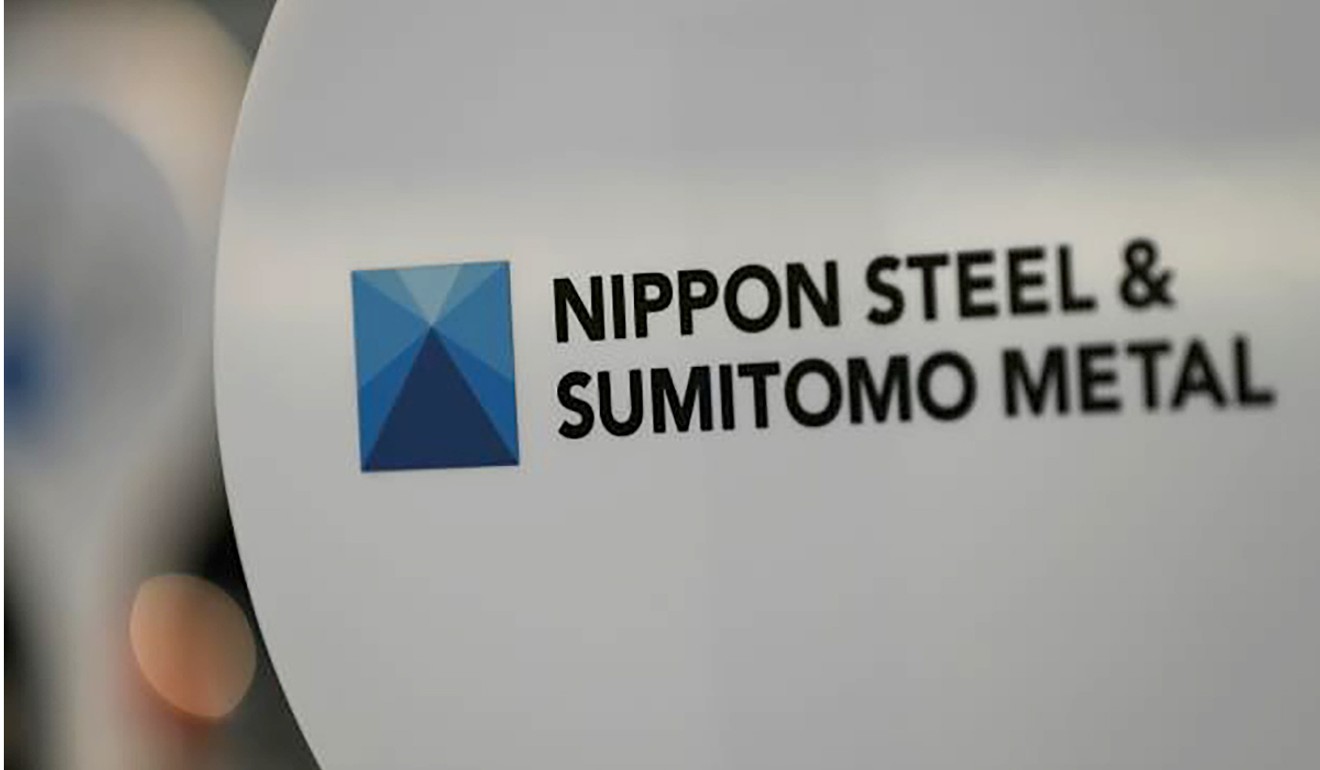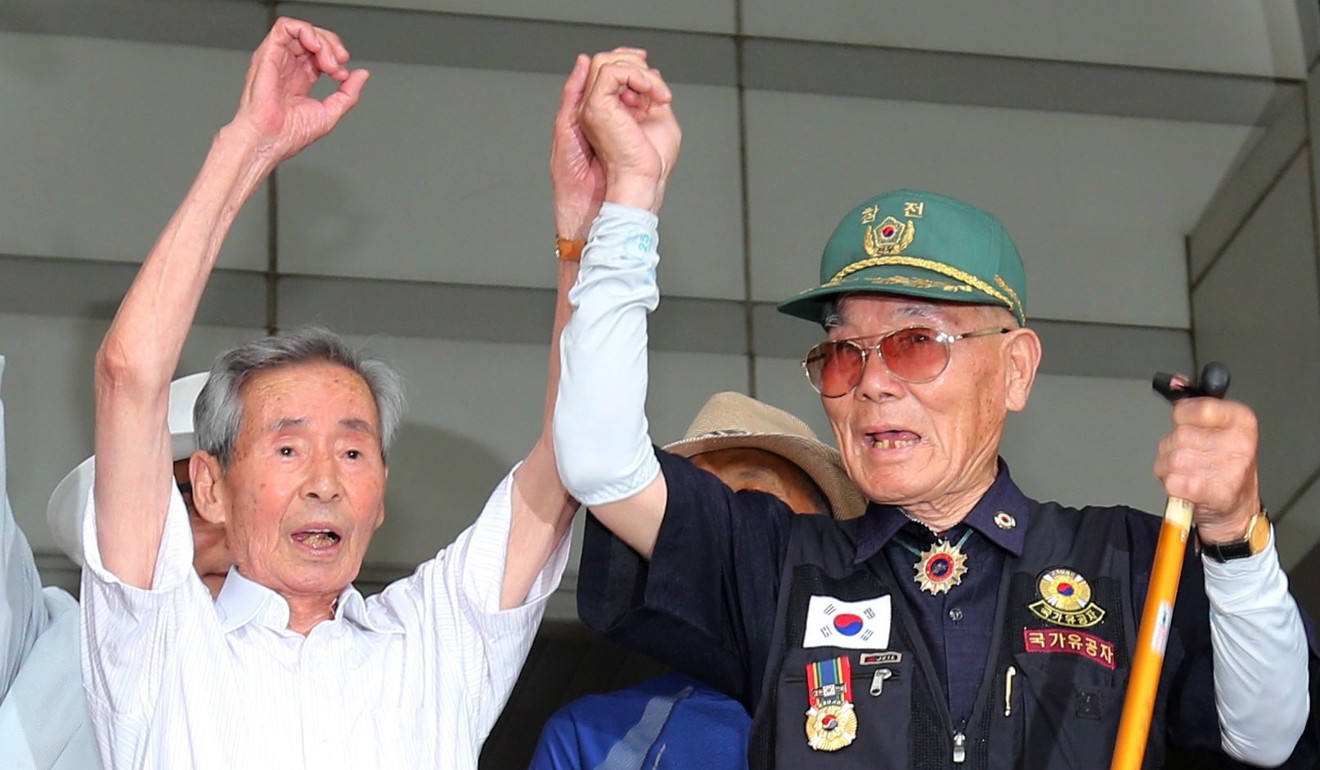
PM Abe mulls countermeasures after Japan firm assets threatened in South Korea forced labour case
- During a television interview, prime minister also said a proposed post-war peace treaty with Russia would benefit the US
Prime Minister Shinzo Abe has directed ministries to look into countermeasures after plaintiffs in South Korea took legal steps to seize the local assets of a Japanese steelmaker that has refused to comply with a court order to pay compensation for wartime forced labour.
“It is extremely regrettable. I directed related ministries to consider specific measures based on international law to show our resolute stance” in regard to the matter, Abe said in a television programme aired on Sunday, although he did not elaborate.

Lawyers representing the South Korean plaintiffs have launched procedures to seize assets belonging to Nippon Steel & Sumitomo Metal in the country, according to an official statement on Wednesday. In response to the action, Japan’s Foreign Minister Taro Kono urged Seoul to prevent Japanese companies from being treated unfairly.
South Korea’s top court in October ordered the steelmaker to compensate four South Koreans who were victims of forced labour during Japanese colonial rule. The decision brought an immediate rebuke from Japan, which maintains that the right to seek compensation was terminated under a 1965 treaty signed between the two countries.

In another wartime forced labour case, Mitsubishi Heavy Industries faces a similar order by a South Korean court.
Meanwhile, Abe said during the NHK TV programme that he believes a post-war peace treaty with Russia would benefit the United States by contributing to regional peace and stability.
“The Japan-US alliance is the basis of Japan’s diplomatic and security policies,” he said.
Japan’s Abe plans to pursue peace with Putin in hopes of regaining islands that Soviet Union seized more than seven decades ago
The Japanese premier is expected to meet Russian President Vlamidir Putin later this month to advance talks on a treaty after the two leaders agreed in November to accelerate their negotiations based on a 1956 joint declaration. Moscow promised in the declaration to hand over two of the four disputed islands between the countries once a peace treaty is signed.
Why China and Japan will continue to be frenemies despite Abe’s visit signalling warmer ties
Abe said there is no change in his intention to try to revise Japan’s pacifist Constitution, but that setting a schedule for a first-ever change to the post-war supreme law is not a top priority. He said earlier he would try to put constitutional amendments into force in 2020.
Natsuo Yamaguchi, head of the Komeito Party, the junior coalition partner of Abe’s Liberal Democratic Party, said on the same television programme that a wide consensus from ruling and opposition parties would be needed to pursue constitutional amendments.

